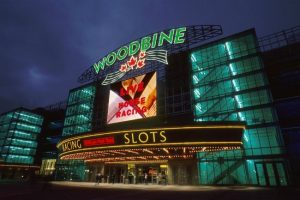 Earlier this year, the Canadian corporation, responsible for the gambling industry in Ontario, and more particularly Ontario Lottery and Gaming Corp. (OLG) announced its decision to entrust the Greater Toronto Area’s gambling sector in the hands of a private operator.
Earlier this year, the Canadian corporation, responsible for the gambling industry in Ontario, and more particularly Ontario Lottery and Gaming Corp. (OLG) announced its decision to entrust the Greater Toronto Area’s gambling sector in the hands of a private operator.
This decision was triggered by the fact that the gaming industry in the province is steadily sinking. The main reason for that is the fact that most of the casino equipment and gaming facilities in the area are old-fashioned and these lack the needed lustre to attract the attention of the players. It is also believed that the constant development of the U.S. online casino market is another handicap for the development of the gaming trade in the area. The lack of players caused a significant drop in the gaming revenues, which the local government cannot afford to lose.
This yielded the following result – OLG launched a privatization bidding, in which the interested parties could compete for a slice of the pie. The winning bidders were supposed to take over OLG’s gaming operations at Toronto’s Woodbine, Great Blue Heron and Ajax. The deal stimulated the appetite of many casino operators, who were enticed by the OLG’s promises of a substantial financial profit of at least $72-million per year, along with up to 70% of the gambling revenue.
The winners were to pen a 22-year-long deal, under which OLG reserves its rights to monitor its business. What is more is that OLG secured a constant cash flow for the local coffers. The agreement, on the other hand, gives the operators the rights to redevelop and properly operate the designated gaming properties.
The expansion of the gaming sector in the province is also in the interest of the locals, as it is supposed to create new job opportunities and decrease the unemployment rate. In the beginning of August, the names of 2 of the companies to sign a takeover deal with OLG were announced. Great Canadian Gaming Corporation and Brookfield Business Partners L.P. were chosen to take the control over certain gaming facilities, also referred to as the “GTA Bundle”. Prior to OLG’s announcement, Great Canadian Gaming Corp. had been suspended from trading on the Toronto Stock Exchange in anticipation of the news.
Following the agreement, the “Bundle”-awarded companies acquire OLG Slots at Woodbine Racetrack, OLG Slots at Ajax Downs and Great Blue Heron Casino, being responsible for their modernization and development.
So far, the things sound way too good to be true – private operators to invest money in the modernization of the gaming industry, decreasing the unemployment rate and generating high gaming revenues. But everything good comes with a price – and that case seems to be no exception to the rule, or at least for the members of the New Democratic Party (NDP) think so. Their concerns were backed up by the fact that the Great Canadian Gaming Corporation and Brookfield Business Partners L.P. are foreign-based companies, which opens the possibility for the money to leave the Canadian borders.
Summing up all the pieces of the puzzle, it seems that the privatization of GTA’s gaming sector will lead to a panoply of improvements, including economic boost, unemployment rate decrease and modernization. But every coin has two sides, which seems to be valid also in the current situation.



















